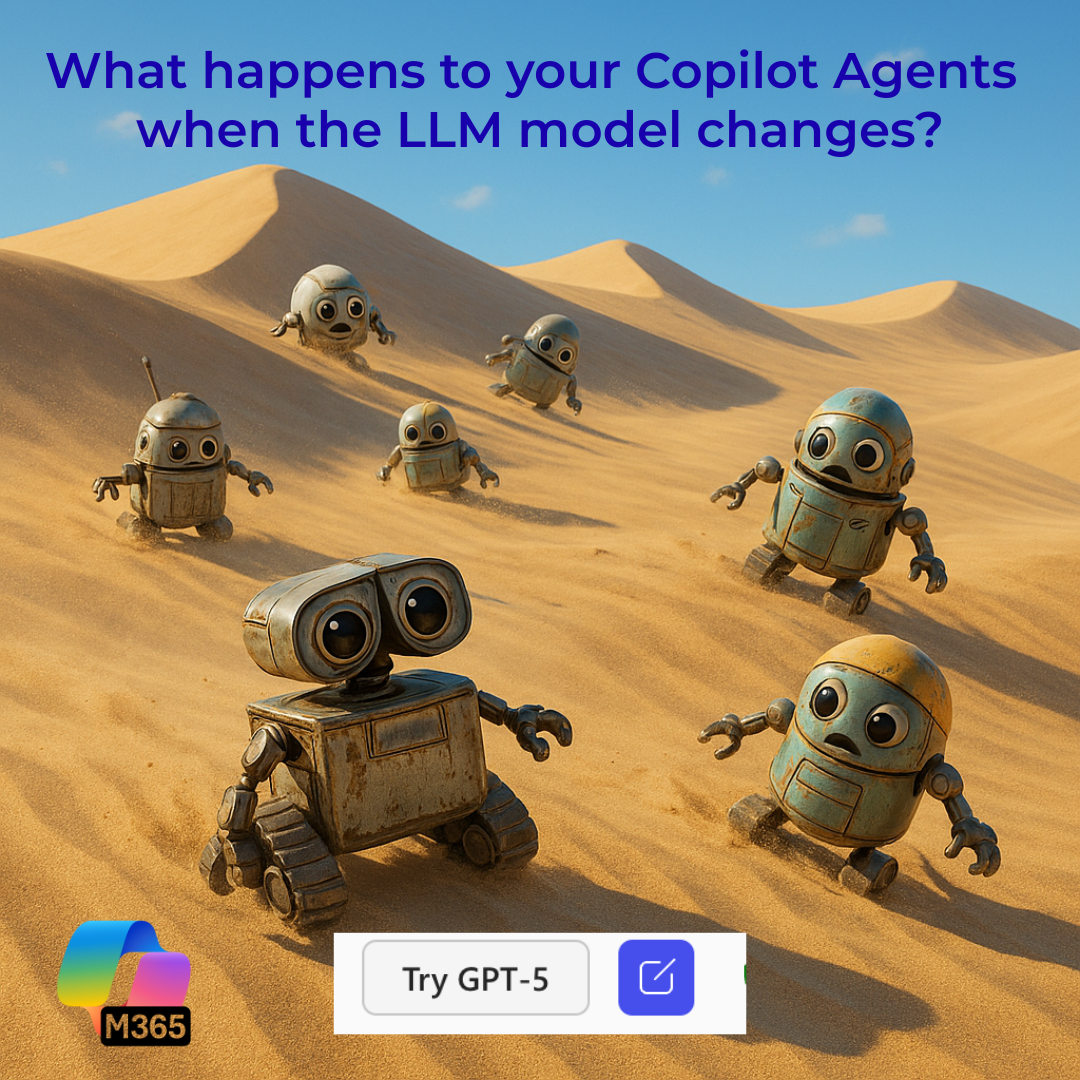From Deploy and Forget to Continuous Stewardship: Lessons from the GPT-5 Rollout
TLDR: GPT-5's rollout exposes a critical gap in AI governance: organizations treating agents like static software when they require continuous stewardship. This isn't a maintenance issue, it's a fundamental shift from project-based thinking to capability management.
Starting last week and rolling out over the next few weeks, Microsoft is deploying GPT-5 across Copilot services. If your organization built agents in March, they're about to behave differently in August. This model transition reveals a dangerous assumption: that AI agents can be "deployed and done."
Most organizations are applying waterfall thinking to systems that demand continuous adaptation. They celebrate the initial deployment, then ignore agents until something breaks. But AI agents aren't traditional software—they're complex adaptive systems that evolve with every model update.
As General Stanley McChrystal observed in Team of Teams: "Complicated systems may be very hard to understand, but they can be broken down into their component parts... Complex systems, on the other hand, are made up of a myriad of interconnected and interdependent parts. When we interact with them, we create unintended consequences."
Your March-deployed agents aren't just getting "better" with GPT-5. They're potentially exhibiting entirely different behavioral patterns that could cascade through workflows in unexpected ways. This demands a fundamental shift in how we approach AI governance.
Organizations that succeed will move beyond scheduled reviews to what I call "AI Operations"—treating agents as living systems requiring ongoing stewardship. This means developing three levels of organizational readiness:
Level 1 (Current state): Deploy, celebrate, ignore until broken
Level 2 (Reactive management): Scheduled reviews and updates
Level 3 (Competitive advantage): Continuous agent performance monitoring with automated feedback loops
The strategic question isn't "how often should we review our agents?" It's "what organizational capabilities do we need to treat AI as a continuous capability rather than a project deliverable?"
The GPT-5 rollout is your wake-up call. Organizations that recognize this shift from complicated to complex systems thinking will build sustainable AI capabilities. Those that don't will find themselves constantly surprised by their own agents.


